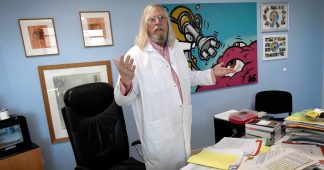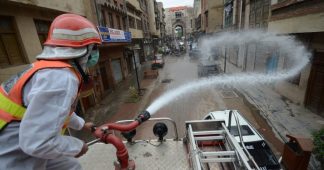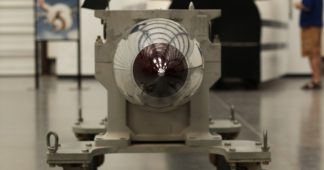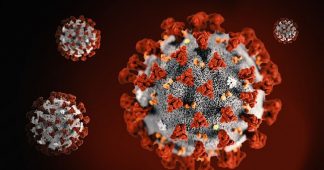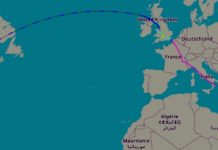A Stanford whistleblower complaint alleges that the controversial John Ioannidis study failed to disclose important financial ties and ignored scientists’ concerns that their antibody test was inaccurate
A highly influential coronavirus antibody study was funded in part by David Neeleman, the JetBlue Airways founder and a vocal proponent of the idea that the pandemic isn’t deadly enough to justify continued lockdowns.
That’s according to a complaint from an anonymous whistleblower, filed with Stanford University last week and obtained by BuzzFeed News, about the study conducted by the famous scientist John Ioannidis and others. The complaint cites dozens of emails, including exchanges with the airline executive while the study was being conducted.
The study — released as a non-peer-reviewed paper, or preprint, on April 17 — made headlines around the world with a dramatic finding: Based on antibodies in thousands of Silicon Valley residents’ blood samples, the number of coronavirus infections was up to 85 times higher than believed. This true infection count was so high that it would drive down the virus’s local fatality rate to 0.12%–0.2% — far closer to the known death rate for the flu.
Almost immediately, the study became a flashpoint in the increasingly politicized debate over whether and how to reopen the economy. Although many scientists assailed its methods, leading the authors to post a revision nearly two weeks later, it was trumpeted by conservative media to support a growing theory: that fears of the coronavirus are overblown.
“Most of the population has minimal risk, in the range of dying while you’re driving from home to work and back,” Ioannidis said on the Fox News show Life, Liberty & Levin, a few days after the study’s release.
But Ioannidis and his coauthors did not disclose that the study was funded in part by Neeleman. “Concern that the authors were affected by a severe conflict of interest is unavoidable,” states the complaint, which was submitted to Stanford’s research compliance office by an anonymous whistleblower involved with the research.
And emails cited within the complaint also suggest that the study’s authors disregarded warnings raised by two Stanford professors who tried to verify the accuracy of the antibody test used. The pair of scientists ultimately refused to put their names on the study because, they told the lead researchers, they could not stand by the test results. The complaint suggests that Neeleman “potentially used financial incentives to secure cooperation from” one of these scientists, who told colleagues by email that she was “alarmed” by aspects of the antibody test’s performance.
Asked if Neeleman donated to the study, Ioannidis said he was “not personally aware” he did. “David Neeleman has a particular perspective and some ideas and some thoughts,” he told BuzzFeed News. “I don’t know exactly who were the people who funded the study eventually. But whoever they were, none of them really told us it should be designed in a given way or done in a given way or find a particular type of result or report a particular type of result.”
Ioannidis added that he did not know how much the study cost, but the funding came from an anonymized pool of financial gifts given to Stanford’s Office of Development: “This form of funding is the most unconflicted type of funding process to do research. It secures perfect intellectual and scientific independence of the study.”
But according to Neeleman, the authors did know he’d given money to fund the study. Neeleman confirmed that he made a $5,000 donation to Stanford to be given to these researchers and that he was in communication with them while they were conducting their research. He denied, however, that he influenced their process or results in any way, saying they had “tremendous integrity,” and said that he was not shown the results prior to release. He also rejected the accusation that he put financial pressure on the researcher who expressed misgivings about the test.
“The whistleblower jumped to a false conclusion that is not provable, because it never happened,” Neeleman said. “There is no there there. Period.”
Another coauthor, Eran Bendavid, also said no donors had any influence on the research process. “We had many funders with their own interests,” Bendavid said by email. “We have been in touch with many people, some of whom may or may not have funded our study (I do not have access to that). That does not mean that they influence our study.”
On whether Neeleman’s contributions were a potential conflict of interest that should have been disclosed, Bendavid told BuzzFeed News that “everybody has an interest,” including the federal National Institutes of Health. He added, “What if I told you we had supporters of Hillary Clinton funding the study? What difference would that make?”
In response to a detailed set of questions about the whistleblower complaint, Stanford Medicine spokesperson Julie Greicius said: “Stanford Medicine is aware of serious concerns related to the Santa Clara County seroprevalence study. The integrity of Stanford Medicine’s research is core to our mission. When we receive concerns such as this, they are taken extremely seriously. This matter is being reviewed by the appropriate oversight mechanisms at Stanford.”
As one of the world’s most-cited researchers and a “godfather to the science reform crowd,” Ioannidis helped elevate the study to national news. In a landmark 2005 paper titled “Why Most Published Research Findings Are False,” he called out the factors that incentivize shoddy scientific work, from personal bias to tenure systems that reward quantity over quality. In doing so, he spurred a movement to root out bad science.
The whistleblower complaint alleges, however, that the coronavirus study was rife with some of the pitfalls Ioannidis has famously lambasted, from a sloppy statistical analysis to an apparent conflict of interest. In the COVID-19 era, as science and politics become increasingly intertwined, the Stanford study is perhaps the highest-profile instance of a hotly contested scientific finding fueling arguments for policies with life-and-death stakes.
Marc Lipsitch, an epidemiologist at Harvard University, criticized the initial study as well as Ioannidis’s early assertions that there simply wasn’t enough data to justify long-term social distancing and lockdowns.
Lipsitch and almost all other experts agree that coronavirus infections are being undercounted to some degree. But he told BuzzFeed News that the allegations raised in the whistleblower complaint further suggest that “the paper and some of its authors are affected by ideology, and that the whole effort was affected by sloppy science.”
And as for Neeleman, Lipsitch added, “This has nothing to do with science. This is wanting his airlines to thrive.”
II. “I have come to know them personally.”
The pandemic’s global death toll is staggering, at 303,000 and counting. It is also inflicting an economic toll unseen since the Great Depression, sending historic numbers of people out of work and putting millions of companies at risk of permanently shutting down. How to solve these interlocking crises, without jeopardizing one or the other, is now a fiercely partisan debate.
One especially hard-hit sector is the airline industry, which stands to lose $314 billion this year as would-be travelers hunker down at home for the indefinite future.
Neeleman is feeling the hit. On top of starting JetBlue in 1999, the entrepreneur founded Azul Brazilian Airlines, cofounded WestJet of Canada and Morris Air, and holds a major stake in TAP Air Portugal.
On April 7, he vented in an op-ed for the Daily Wire, the right-wing news website helmed by political commentator Ben Shapiro. “Since the outbreak, I have spent all my days and a lot of my nights trying to find a solution to save as many as possible of the 40,000 jobs I am responsible for and do what I can to help avoid an economic catastrophe in the making,” Neeleman wrote.
His “search for a solution,” he continued, had led him to “three amazing and dedicated professors and scientists from Stanford University School of Medicine with impeccable credentials”: Jay Bhattacharya, Eran Bendavid, and John Ioannidis. “I have come to know them personally,” Neeleman added.
Days prior to the op-ed, those scientists had overseen their massive antibody, or serological, survey in Santa Clara County. On April 3 and 4 in sunny Northern California, more than 3,300 people drove through pop-up testing sites at two parks and a church and stuck out their fingers to be pricked. If their blood turned out to have antibodies to the virus, that could indicate they’d recovered from an infection.
Many participants had learned about the test from Facebook. Others had received an email from Bhattacharya’s wife, falsely claiming that an “FDA approved” test would definitively reveal if they could “return to work without fear,” as BuzzFeed News has reported.
The Stanford team wouldn’t release their results until April 17. But in his Daily Wire op-ed 10 days beforehand, Neeleman spelled out what the scientists thought antibody testing would show: “Drs. Ioannidis, Bhattacharya and Bendavid believe that the actual number of cases is very likely off by an order of magnitude of 10, or maybe even many times more.” This was important, Neeleman explained, because if the actual number of infections was “3 million, 10 million or more,” it would be “a game changer”: the fatality rate would be “a tiny fraction of the percentage based on deaths as a fraction of confirmed cases.”
It was no secret that the scientists shared Neeleman’s belief, even before they conducted their study. In op-eds of their own — Ioannidis in Stat on March 17 and Bhattacharya and Bendavid in the Wall Street Journal a week later — all three argued that the death rate was likely drastically lower than believed.
t is almost certain that the infection fatality rate — the number of deaths divided by total cases, both diagnosed and undiagnosed — is lower than currently reported. Of the 1.3 million diagnosed coronavirus cases in the US, about 6% have died. But deaths are likely undercounted. And experts stress that, because of severe delays in diagnostic testing and the unknown number of asymptomatic and mild cases, the number of people who have already been infected is also much higher than we know.
But the Stanford study authors did not just hypothesize, and then calculate, fatality estimates that are on the lower end. Some of them also declared that the coronavirus is therefore not much deadlier than the flu.
In a video announcing the study’s results, Ioannidis told viewers that the virus has an “infection fatality rate that is in the same ballpark as seasonal influenza.” On May 1, he told Wired, “Based on what we’re seeing now, the fatality of the virus is more or less the same as influenza, about 0.1 percent. Most of the earlier data was completely bogus.” The high estimate infections were “great news,” wrote coauthor and biotech investor Andrew Bogan in the Wall Street Journal, hours after the study was posted, because “the true infection fatality rate is somewhere in the range of 0.12% to 0.2% — far closer to seasonal influenza than to the original, case-based estimates.”
Read more at https://www.buzzfeednews.com/article/stephaniemlee/stanford-coronavirus-neeleman-ioannidis-whistleblower
